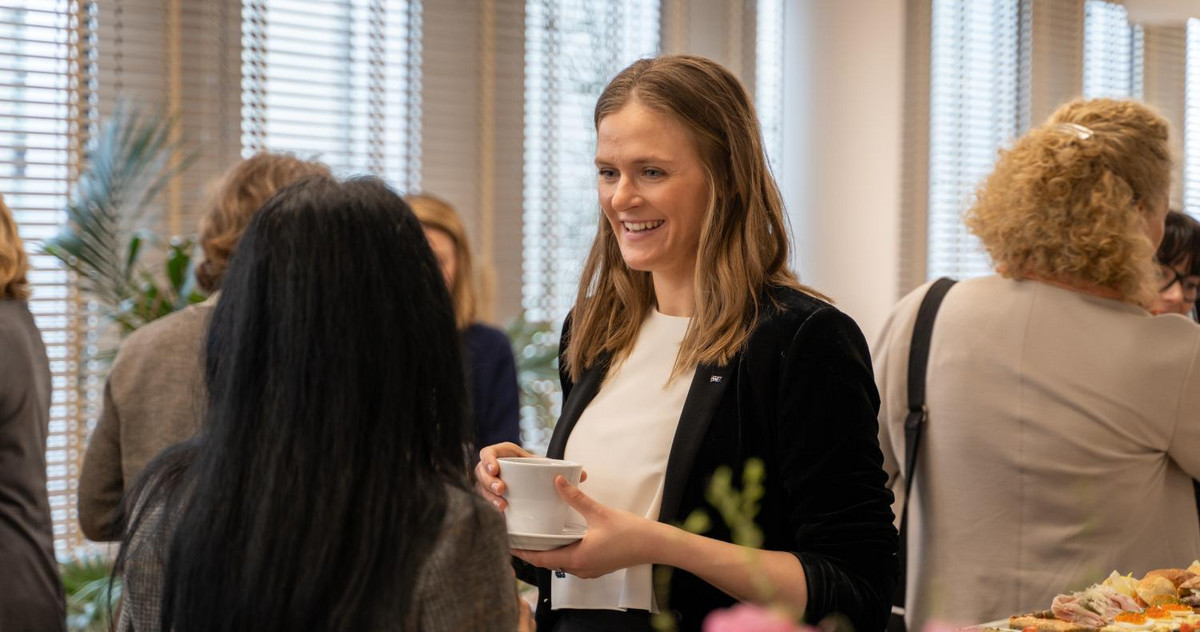Overview
Recommendations
Next Steps
Social media
Advice for leadership in challenging times
Why are some people handling the coronavirus crisis better than others? Adela Mehic-Dzanic, a manager and a graduate of the MBA Entrepreneurship & Innovation from Bosnia and Herzegovina, and Prof. Stephan Doering, Chair of the Department of Psychoanalysis and Psychotherapy at the Medical University of Vienna, analyze why this is the case and offer some advice for executives navigating stormy waters.

The coronavirus pandemic has reached every corner of the world by now, yet the ways people respond to it vary greatly. While some succumb to panic, others keep their calm and focus on solutions. This, naturally, depends on the degree to which people are personally affected and especially whether or not their livelihood is at risk due to the health-related and economic consequences of the pandemic. Beyond that, there are cultural differences in how people deal with a crisis: “Talking to students and alumni from the CEE region in the past weeks, I’ve often noticed that they cope with the coronavirus crisis in an entirely different way than most people in Austria or other Western countries. But why is that the case?” Prof. Barbara Stöttinger, Dean of the WU Executive Academy in Vienna, asks.
Whenever this question is posed among the WU Executive Club, the business school’s alumni community, members give fairly similar answers: as opposed to the people in democratically ruled, affluent Western societies, many natives from CEE countries have already lived through crises in the past 30 years. Where the West was “only” affected by the financial crisis of 2008, CEE countries had to deal with wars, displacement, and the Iron Curtain.
Adela Mehic-Dzanic is Vice President of the WU EA Female Leaders Network and heads the Connectivity Service Providers (CSP) segment of the software company Mavoco in Vienna. Her story and background are typical of that of many people from the CEE region. During her childhood in Bosnia, the people in Yugoslavia were doing well: “We had everything; we took vacations in Croatia and Montenegro, and the universities were flourishing.” While Mehic-Dzanic’s grandmother, a mother of ten, was illiterate and signed documents with her fingerprint, her father and mother were shop owners and brought up five children. But then the war broke out in 1992: “Overnight, our entire world was turned upside down: we had had everything, and all of a sudden we had nothing.” The family had to flee to several different regions before they could finally find refuge with relatives.

This experience left a deep impression on the young woman and her whole generation: “I often talk about this time with my friends, many of whom have built companies here in Austria. The coronavirus crisis reminds us of what it was like back then.” But the crises they have already had to master have made them tougher: “We saw the coronavirus crisis coming, analyzed it, gained a rough understanding of its effects, and then we simply carried on. We regrouped and adapted.” Reflecting on the situation together and resorting to humor has helped them cope with the situation: “Most of my friends said that the current situation is by far not as bad as the things we have lived through. We have enough to eat, roofs over our heads, working infrastructure, and our families are healthy and safe. We do not have to leave our homes, and we either have jobs or will find new ones.”
There are vast differences in the way a crisis affects an individual’s mind and brain, says Prof. Stephan Doering, the Chair of the Department of Psychoanalysis and Psychotherapy at the Medical University of Vienna: “It depends on a person’s inherent and acquired resilience, their disposition, whether their formative relationships were empowering or burdensome, in short: his or her personality.”
People who have already overcome a crisis are generally more resilient: “They trust their own capabilities more and more and are confident that they will be able to weather another crisis because they already have coping strategies at their disposal. What is more: there is a lesson to be learned from every crisis. It is very likely that in the future, many entrepreneurs will implement different economic safeguards than in the past,” Doering says.

As a manager, Adela Mehic-Dzanic made sure she was there for her staff; the lockdown, working from home all of a sudden, closed borders, and being separated from friends and family were “a huge shock” that affected both the “professional and private sphere.” Right away, she had to answer the following question: “How will this situation affect my team and our projects, and how secure is my job?” Gradually, the team got used to the “new normal.” They received new project requests, and customers returned. Luckily, as a software enterprise, working from home and collaborating virtually in five locations across Europe were not exactly new tasks for her team. Adela Mehic-Dzanic made up her mind to proactively look for solutions.

Adela Mehic-Dzanic
I always try to lend a helping hand to others, share my knowledge and experiences, be there for my team, remain open, and act transparently.
Adela Mehic-Dzanic has seven pieces of advice for executives looking to crisis-proof their mindset:
Never underestimate the power of positivity: no crisis lasts forever; sunshine follows rain. The sooner you internalize this, the better. I have read numerous success stories of remarkable leaders of the past and what they all had in common was that none of them had it easy in life. I have decided to believe in a better future, and I am willing to roll up my sleeves and keep putting in the work. It is important to me to serve as a role model for others.
I decided to spend the lockdown working on my ten-year vision, taking extra good care of my health, furthering my professional and personal development in group coaching sessions with other entrepreneurs from around the world, and continuing to serve my community through various networks such as the EA Female Leaders Network and other projects. I am motivated by the goal to surpass myself and also be there for my community. There are a lot of people around us who have had a much harder time than we.
Befriend change and welcome it with open arms. I have been working in the fields of IoT and digital transformation for more than five years, advising enterprises from around the globe on change management and the inevitability of change. Most chose not to believe in it, but those that did moved mountains. The crisis suddenly made many things possible: in a matter of only a few weeks, even the most traditional companies went digital. Having run out of alternatives, they started a web shop and soon could not imagine business without one any longer.
Recognize what is and imagine what will be. Keep the big picture in mind as you march on, moving into the right direction step by step.
The larger part of your team will be looking for change anyway. All they need is your support. In most cases, your team members will know what to do. Trust them and also trust the process.
Stop concentrating on everything that is going wrong. It is a waste of energy and won’t solve any problems.
We go through many crises in life and can use them to form a pyramid in which every crisis is a building block, adding stability instead of drawing us into a downward spiral. Let’s create a better future for ourselves and the next generation.
The Covid-19 crisis has also left its mark on the WU Executive Academy. All information regarding the impact on our MBA programs can be found here.